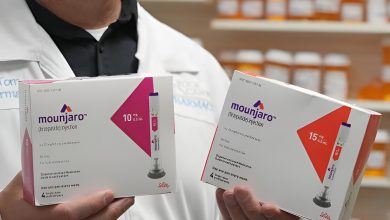Eating more raw vegetables may help weight loss, reduce heart disease risk

- Plant-based diets have been linked by researchers to improved long-term health outcomes, especially in relation to obesity.
- According to the study, eating a plant-based diet may help manage and prevent metabolic illnesses by regulating weight and enhancing diet quality.
- Specifically, the study shows that increasing consumption of raw veggies can have a major positive effect on health.
A review by researchers from Shandong University’s Qilu Hospital demonstrates a connection between plant-based diets and improved long-term health outcomes, especially in relation to obesity.
The study shows that a plant-based diet is a useful strategy for managing and preventing metabolic illnesses as well as for controlling weight and improving food quality.
Even though going completely vegan might not be required, the study shows that increasing your vegetable intake might have a big impact on your health.
Their research, which was published in Frontiers in Nutrition, strengthens the body of data demonstrating the benefits of plant-based diets for long-term health, including heart disease prevention and weight loss.
Vegetarian and vegan diets have been linked to improved immune system strength, lower cholesterol, heart and brain health, improved digestion, and longer lifespans, according to numerous studies.
This doesn’t imply that everyone should stop eating meat right away, but it does indicate that cutting back on meat consumption can have a big influence on health.
Benefits of plant-based diets tend to increase over time
The study’s authors examined 24 papers about plant-based diets and weight loss, examining information from 2,223 people between the ages of 18 and 82 who had followed diets for two to 96 weeks. They discovered that the advantages of plant-based diets tended to grow over time.
Although those who followed a fully vegan diet lost the most weight, it wasn’t significantly more than those who continued to eat dairy and eggs.
But the clearest link to lower risks of obesity and heart disease was found in studies involving higher consumption of raw veggies.
Mendelian randomization, a technique better suited to determining cause-and-effect links in health, was used by the researchers in a second study, even though randomized controlled trials are unable to conclusively demonstrate that consuming raw veggies directly improves health.
By examining genetic data from a public database, the team was able to identify genetic polymorphisms associated with things like eating more vegetables and adopting a plant-based diet.
This research indicated that rather than genetic predisposition, eating more raw veggies was likely the cause of the observed weight loss.
Raw vegetables contain anti-inflammatory compounds
The researchers point out that substances found in raw veggies, such as phytosterols and unsaturated fats, can lower blood cholesterol.
They also highlight compounds with anti-inflammatory and antioxidant properties, such as flavonoids, carotenoids, ascorbate, and tocopherols.
While eating more raw vegetables might be beneficial to health, it’s vital to avoid going too far with a 100% raw plant-based diet as this can lead to vitamin shortages.
Consequently, rather than embracing a purely vegan lifestyle, the researchers’ main takeaway from these studies is to concentrate on increasing the amount of vegetables in the diet.
Medical News Today was interviewed by two specialists who were not involved in this study.
Plant-based registered dietitian Haley Bishoff, RDN, LD, owner of Rūtsu Nutrition in Las Vegas, expressed optimism about the growing popularity of the conversation around plant-based eating.
“Nothing in this research article was deemed ‘causal,’ but there should be sufficient evidence to support a potential or correlative relationship between plant-based eating and favorable health outcomes,” added Bishoff.
“This study is very interesting in that it is a Mendelian randomization study, which considers the genetic variants as exposure to help consider the outcomes,” stated Courtney Pelitera, MS, RD, CNSC, a registered dietitian with expertise in sports nutrition and wellness nutrition.
It focused on randomized control trials that examined weight loss and contrasted plant-based and animal-based diets. Studies that included physical exercise were not included. To be definitive about the effects of plant-based diets when it comes to weight and ASCVD, more research is undoubtedly needed on this subject, the speaker stated.
Owing to variations in the assessed articles, the discrepancies seem to have been the largest drawback in this investigation, according to Pelitera.
Benefits of increasing plant-based foods
“People can greatly benefit from learning about the benefits of eating more plant-based,” Bishoff continued. In addition, making the adjustment might be quite simple.
Aim to consume 50% of your meals and snacks as produce if you’re unsure of how to go about doing this. Bishoff continued, “You can help fight inflammation, rid your body of waste, improve blood lipid levels, and so much more just by increasing your fiber consumption alone.”
“Calorie restriction in diets results in overall weight loss (fasted or non-fasted),” Pelitera concurred.
Pelitera summarized the recommendation as follows: “We want to reduce body weight and reduce the risk of ASCVD in our patients by recommending increased vegetable intake.”
“A plant-based diet should be discussed with a patient as a great choice if they are willing and interested in it. Especially if this is a significant life change, the patient would preferably receive coaching from a qualified dietitian while they follow the plant-based diet. This will guarantee that, while adhering to the regimen, all nutrient requirements are satisfied,” she continued.




